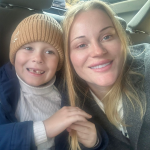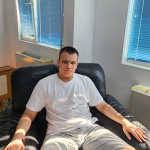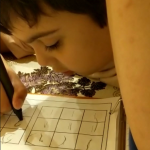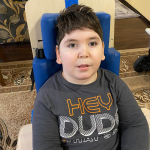Music in Autism — Effective Therapy Methods
A recent study conducted in China showed that music can improve the social skills of autistic children and create a connection between them and their parents. There are several equally effective ways to achieve this goal, and they are definitely worth trying in therapy. Various methods of music therapy exist.
- Listening to Music
One of the simplest options is listening to music. It has long been established that rhythm, not just melody, can have a calming effect on children. Slow, calm, and quiet music helps alleviate anxiety, while more rhythmic and louder music stimulates the nervous system. For example, compositions by Pink Floyd are particularly effective in forming social connections and alleviating some symptoms of autism. However, each child is unique, and it’s possible that they may prefer other artists. - Encouraging Music Playing
Introducing the child to playing music can also be extremely helpful. Start with simple instruments — autistic children tend to follow their parents’ example. Later, the child can begin to play independently, and music may spark their particular interest. Furthermore, this practice helps the autistic child manage their state. There is no specific instrument that works best, but a simple synthesizer may be a good start. It’s affordable, easy to learn, and offers various sounds. - Singing Together
Singing together is another great method of communicating with the child, improving interaction. You can also assign them simple daily tasks in a song form.
Starting Communication Through Music
To begin communicating with an autistic child using music, it’s best to start with listening to compositions. Choose a few recordings in different styles and observe the child’s reaction at different times of the day to determine when their positive response is most noticeable. Initially, don’t apply too much pressure, as results may vary — one child may prefer calm melodies, while another may enjoy more energetic ones.
Once the child becomes interested and begins to play independently, you can record the music they perform. You don’t need professional equipment — a smartphone will suffice, but it’s better to get a microphone and connect it to a computer or laptop. The sound quality can play an important role for the child. Moreover, recording together can become a form of communication, allowing the child to experiment with sounds and evaluate the result. It’s even possible that they will become a professional musician and achieve success later in life.
Effectiveness of Music Therapy for Autistic Children
Music therapy has proven effective in building connections and developing social and practical skills. However, there is no universal approach. It is important to use all available methods, but they will require certain effort and time and may not always be highly effective. A much more reliable approach is correction through cell therapy.
Stem Cell Therapy as a Solution
Stem cell transplantation allows for the removal of the root cause of autism — the damaged cells are replaced with healthy analogs, normalizing brain and nervous system functioning. This technology has been highly praised and may become the primary weapon in the fight against autism. It is already widely used in the best clinics worldwide, including the Mardaleishvili Medical Center. The doctors at this center have extensive successful experience with cell therapy and use the latest equipment. Additionally, the services at the center are more affordable compared to other countries with developed healthcare systems, and its staff provides all the necessary assistance from the moment of trip planning.
With this treatment, autism symptoms will quickly disappear, making supplementary therapies, including music therapy, much more effective.
Use Stem Cell Therapy and Improve Communication with Your Child through Music!
Autism Treatment Center Videos
Autism treatment with own stem cells
Cord blood association congress
International Quality Crown
Autism Treatment Reviews
Autism treatment with own stem cells
The story of Alessandro (6 years old)
Autism Patient Testimonial - Stem Cell Treatment
Clients Testimonials

Feedback from Igor, David’s father (12 years old) Read More

Feedback from Olga, Fedya’s mother Read More

Feedback from Natalia, Radomir’s mother (15 years old) Read More

Feedback from Esther, Samuel’s mother (8 years old) Read More

Feedback from Abibe, Selim’s mother (7 years old) Read More












